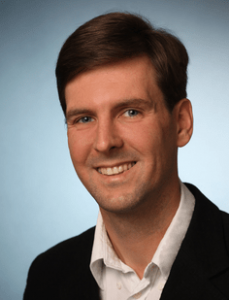Dr. Sebastian Wende-von Berg: EU-SysFlex features challenges and experience from almost the whole Europe
03.07.2019Media Dr. Sebastian Wende-von Berg is working with Fraunhofer IEE in Kassel since 2015 in the area of energy informatics and mathematical algorithms with the focus on system services and grid optimization. He is coordinating the work of Fraunhofer IEE in a number of national and international research projects dealing with the integration of renewables. He studied physics at the Georg-August- University of Göttingen. He received his MSc in 2007 and his Ph.D. (Dr.rer.nat) in theoretical astrophysics in 2010. Before joining Fraunhofer he was working for five years in PostDoc positions dealing with modelling and optimization problems.
Dr. Sebastian Wende-von Berg is working with Fraunhofer IEE in Kassel since 2015 in the area of energy informatics and mathematical algorithms with the focus on system services and grid optimization. He is coordinating the work of Fraunhofer IEE in a number of national and international research projects dealing with the integration of renewables. He studied physics at the Georg-August- University of Göttingen. He received his MSc in 2007 and his Ph.D. (Dr.rer.nat) in theoretical astrophysics in 2010. Before joining Fraunhofer he was working for five years in PostDoc positions dealing with modelling and optimization problems.
Since 2018 he is also team leader at University of Kassel dealing with artificial intelligence in grid operation related applications. Since 2019 he became a group leader at Fraunhofer IEE and is concerned with IT systems for operational applications and standardized data models and interfaces.
In September 2019 he will be joining 12th Annual Electricity Flexibility, Ancillary Services and Balancing Forum as a speaker and talking more about EU-SysFlex.
Based on your experience and research, what is the current state of flexibility capabilities throughout Europe?
At the moment it is very heterogeneous throughout Europe. In principle, flexibilities are existent in all countries, on every voltage level, but the ways and possibilities to approach and harness them are often technical and regulatory complicated and expensive. The trend goes in using small scale decentralized flexibilities in LV grids from households and smaller complexes. There is a huge potential and also looking towards more electro vehicles and charging infrastructure, coordinating and using such flexibilities will be the way to success. For both, integrating EV and smoothing sharp generation and consumption peaks.
You have been working closely with various flexibility projects throughout Europe. What are the advantages of the successful implementation of the EU-SysFlex project in particular?
In EU-SysFlex a very strong consortium has been formed, consisting of several TSO and DSO as well as manufactures and research organisations. Since there are more than 20 countries involved, challenges and experience from almost the whole Europe are considered and discussed. One key aspect is that, TSOs and DSOs work jointly together looking for a joined approach for a sustainable energy system in the next 30 years.
The solutions which are worked out in the project are not only of theoretical nature, but most of them will be validated and demonstrated in real life applications at DSOs and TSOs using available resources in the electrical grids. The experience from these demonstrations will then be conducted in a roadmap, which will then be based on applicable and tested solutions.